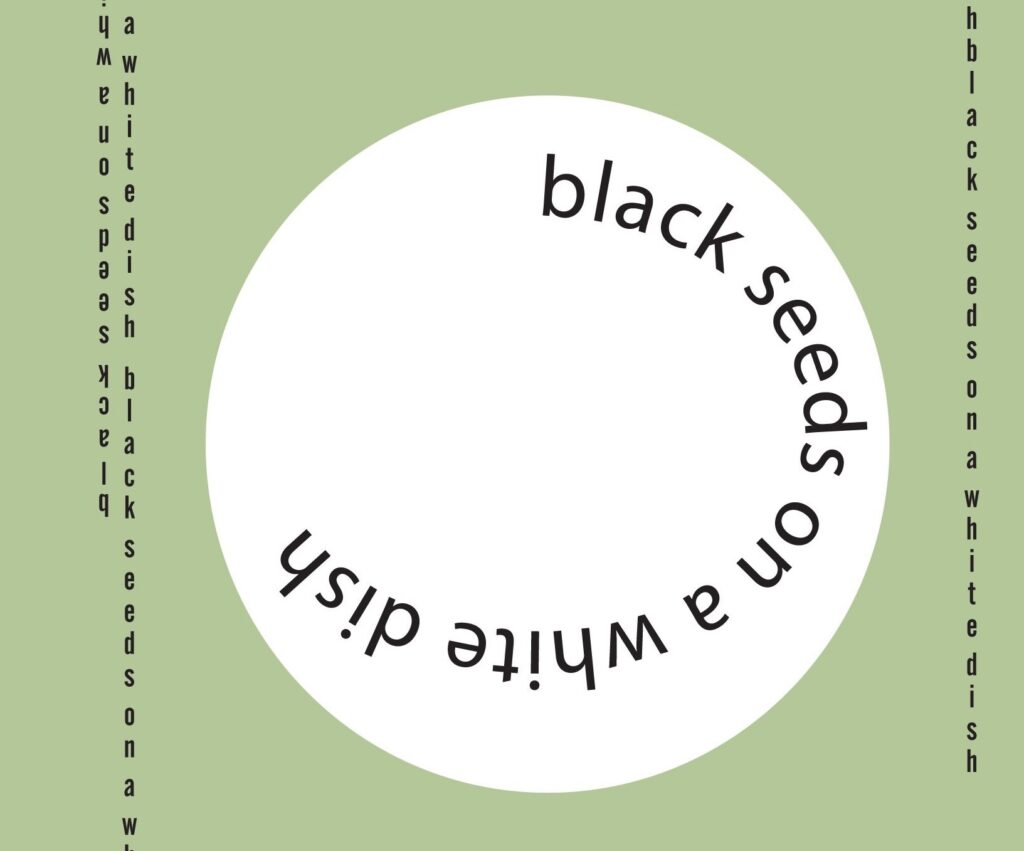Shira Dentz, black seeds on a white dish, Shearsman Books, $15 (paper)
The arabesques of sense and syntax in black seeds on a white dish, Shira Dentz’s debut collection, challenge the reader to some speedy catch-me-if-you-can linguistic play. Her sensuous figurative language, from catachresis to synesthesia, calls to mind the exuberance of the Song of Solomon, but where the biblical poet compares a lover’s teeth to a flock of shorn sheep and her breasts to twin deer, Dentz tells us that voices “smelled like suede” and that black is opened “clear down to its neck.” In the poem “U,” shape prompts inspired associations: “Reaching into the bottle’s mouth; gullet. / Very tiny bottle. / Like a vault, / like a pleased mouth. / Upside-down breast. / The thing I would hold in my hand.” Gradually, pieces of what might be narrative emerge and coalesce—a brother’s death, an overbearing father who “blew cinders,” an unapologetically adulterous lover. Certain of Dentz’s spirited, provocative titles—“Poem for my mother who wishes she were a lilypad in a Monet painting,” “Rorschach: Last week, the moon dipped close to the gray streets, a surprise guest, huge and yellow”—hand the reader a clear sense of sentiment and occasion. Grammatical fragments occasionally frustrate, as if Dentz were conducting too many experiments at once—Marjorie Welish–style elisions, Fanny Howe–style evasions—but overall, the poems in black seeds on a white dish reward multiple readings, particularly the longer poems, such as “Here,” which are inventive without succumbing to whimsy as they sketch a jangling world.







